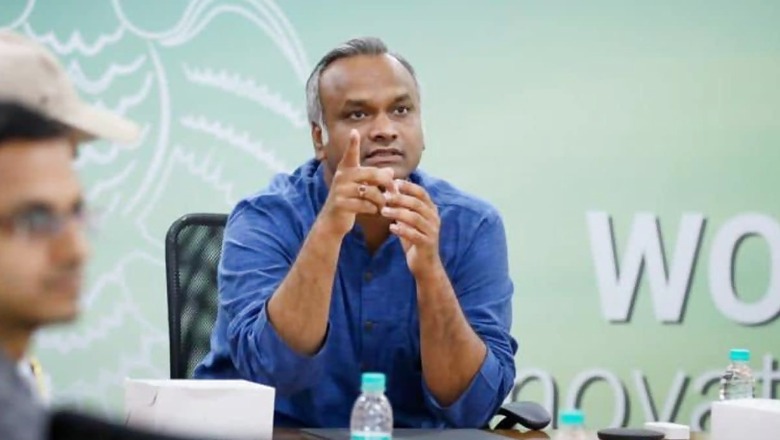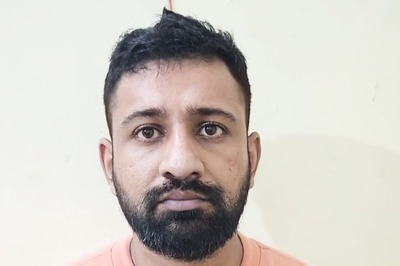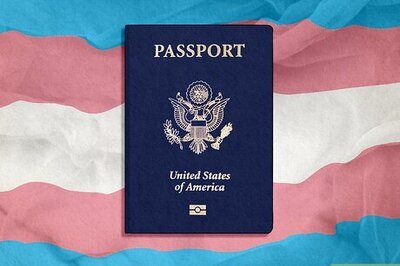
views
A day after the Karnataka Police filed a case against national news anchor Sudhir Chaudhary for “creating enmity between two groups” and a 14 news anchors were ‘blacklisted’ by the INDIA alliance, the Congress government spelled out details of its controversial ‘Fact-checking Unit’ dedicated to monitoring ‘fake news’ on social media platforms and media outlets.
According to Priyank Kharge, Karnataka’s State Information Technology and Biotechnology Minister, this initiative aims to scrutinise and classify social media posts and news reports as ‘misinformation’, ‘disinformation’, or ‘mal-information’.
“We are not here to either control the public narrative, nor are we here to control the media narrative. We are also not here to regulate anybody. If anything (information) is shared on public platforms, all we are saying is if it is a truth or a lie,” Kharge told reporters in Bengaluru.
“Mal-information is when genuine information is shared to cause harm by moving information designed to stay private into (the) public sphere,” Kharge specified.
“He (Sudhir Chaudhary) shared a genuine notification of a scheme by a minority corporation. But he is twisting the information to cause harm. He is saying some other communities are being deprived without even understanding that other communities also have a similar scheme,” Kharge told the media.
Opposition BJP, however, has flagged the move by the Congress as ‘oppressive and malicious’. A senior BJP leader said India’s Information Technology Act, 2000, which governs online content in the country, does not provide any powers to state governments to constitute a fact-checking body like Karnataka has proposed. “This has been done only to safeguard lives and try to keep the media under their control,” the leader told News18.
On August 21, a meeting chaired by Karnataka Chief Minister Siddaramaiah to create a cybersecurity police force for the state approved the formation of fact-checking units to tackle ‘fake news syndicates’. After reviewing the first draft of the proposal, the chief minister insisted that there have to be stringent measures to curb fake news and its circulation.
The ‘fact-checking unit’ will be overseen by an ADG rank officer from the Intelligence/CID department, senior government officials, lawyers and responsible civil society members who will flag social media posts and news reports as ‘misinformation’. Based on this, the government will take legal action against news organisations found disseminating such ‘disinformation’.
The categories are as follows:
Misinformation: Minister Kharge clarified that misinformation pertains to false or inaccurate information with no intent to cause harm. Giving an example of a viral WhatsApp forward falsely claiming that the Indian national anthem, Jana Gana Mana, had received a UNESCO award, Kharge explained that while inaccurate, such misinformation is deemed harmless to the public.
Disinformation: This category encompasses deliberately deceptive and harmful false or inaccurate information. False tweets by a BJP leader, Arvind Limbavali, regarding the death of Paresh Mesta in 2017, which incited communal violence across the state, was one such example. Subsequent investigations by the Central Bureau of Investigation (CBI) concluded that Paresh Mesta had drowned, refuting the earlier claims.
Mal-information: This is characterised by the sharing of genuine information with the intent to cause harm. For instance, the fact-checking unit highlighted a case where Sudhir Chaudhary was accused of maliciously misrepresenting a commercial vehicle subsidy scheme for minority, SC/ST, and backward classes communities and said this would be characterised under mal-information.
The fact-checking unit will also accept inputs from the public and employ specialised teams to examine online content for indications of ‘fake news’. If a social media post is identified as ‘disinformation’ or ‘mal-information’, the unit will report and work with the social media platform to suggest removing the content. Should these flagged posts violate existing laws, they will be referred to the Home Department for potential legal action. This could result in individuals and news organisations facing charges under various sections of the Indian Penal Code (IPC), which may include accusations of cheating, inciting public unrest, defamation, and provoking riots.
This decision by the Siddaramaiah government raised concerns regarding the move possibly impinging upon the freedom of the press, and the Editors Guild of India has issued a statement that any move to check the spread of fake news should not be draconian in nature but should be fair and independent.
The Bengaluru police announced the setting up of social media monitoring units of the police within the city’s jurisdiction, and station heads have also been introduced to training programmes to identify provocative and fake posts, debunk fake information, and identify the truth behind it.
In April last year, in a case involving the death of a 19-year-old, BJP leaders claimed that the murder was linked to the victim’s inability to speak Urdu. However, the then Bengaluru police commissioner initially suggested that the incident resulted from a road rage situation following a traffic accident. Karnataka BJP Home Minister Araga Jnanendra initially contradicted the police version. “Subsequently, the Home Minister retracted his statements regarding the motive for the murder after the police fact-checking unit provided information on the real reason behind the incident,” explained Bengaluru police commissioner B Dayananda.
“Rest assured, we will diligently follow the tenets of natural justice. Let it be clear that the establishment of this unit is in no way an attempt to impinge upon the freedom of the press,” assured Kharge.



















Comments
0 comment